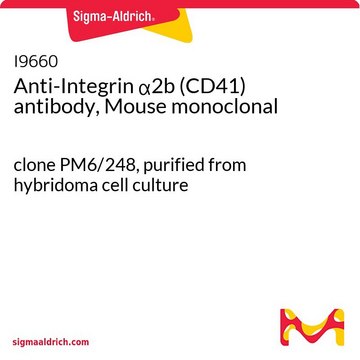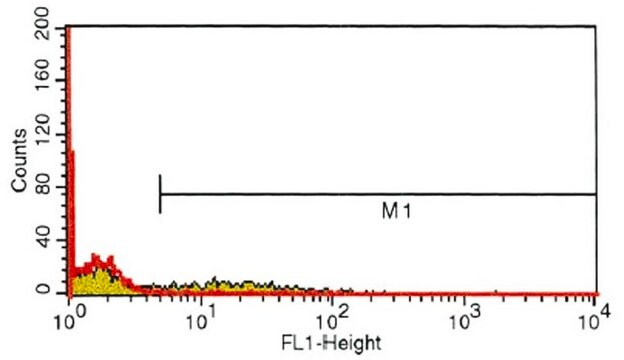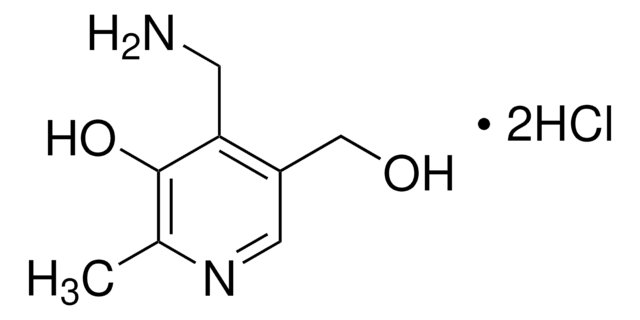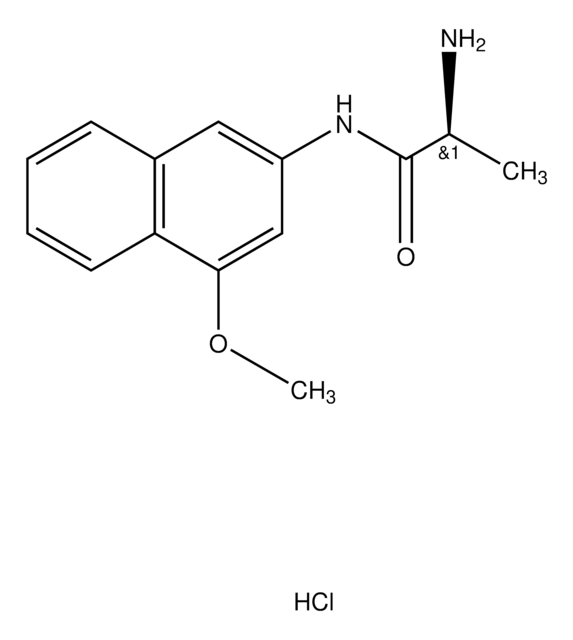おすすめの製品
由来生物
human
リコンビナント
expressed in E. coli
詳細
0.1 mg recombinant human CHD14 in 20 mM Tris-HCl buffer, containing NaCl, KCl, EDTA, L-arginine, DTT and glycerol.
無菌性
Filtered sterilized solution
アッセイ
≥90% (SDS-PAGE)
形状
liquid
包装
pkg of 100 μg
濃度
0.5 mg protein/mL
テクニック
cell culture | mammalian: suitable
アクセッション番号
NP_000582
輸送温度
dry ice
保管温度
−20°C
遺伝子情報
human ... CD14(929)
関連するカテゴリー
アプリケーション
Coating a plate well (6 well plate) with this recombinant CD14 protein in a T cell specific medium at 1-10 μg / well can be used as 1) a human T cell / receptor interaction studies in vitro or 2) a breast cancer biomarker for diagnosis application when combined with CD16 antigen.
Use this procedure as a guideline to determine optimal coating conditions for the culture system of choice.
1. Thaw CD14 and dilute to desired concentration using serum-free medium or PBS. The final solution should be sufficiently dilute so the volume added covers the surface evenly (1-10 μg/well, 6 well plate).
2. Add appropriate amount of diluted material to culture surface.
3. Incubate at room temperature for approximately 1.5 hours.
4. Aspirate remaining material.
5. Rinse plates carefully with water and avoid scratching bottom surface of plates.
6. Plates are ready for use. They may also be stored at 2-8 °C damp or air dried if sterility is maintained.
Use this procedure as a guideline to determine optimal coating conditions for the culture system of choice.
1. Thaw CD14 and dilute to desired concentration using serum-free medium or PBS. The final solution should be sufficiently dilute so the volume added covers the surface evenly (1-10 μg/well, 6 well plate).
2. Add appropriate amount of diluted material to culture surface.
3. Incubate at room temperature for approximately 1.5 hours.
4. Aspirate remaining material.
5. Rinse plates carefully with water and avoid scratching bottom surface of plates.
6. Plates are ready for use. They may also be stored at 2-8 °C damp or air dried if sterility is maintained.
シーケンス
MASMTGGQQMGRGHHHHHHGNLYFQGTTPEPCELDDEDFRCVCNFSEPQPDWSEAFQCVSAVEVEIHAGGLNLEPFLKRVDADADPRQYADTVKALRVRRLTVGAAQVPAQLLVGALRVLAYSRLKELTLEDLKITGTMPPLPLEATGLALSSLRLRNVSWATGRSWLAELQQWLKPGLKVLSIAQAHSPAFSCEQVRAFPALTSLDLSDNPGLGERGLMAALCPHKFPAIQNLALRNTGMETPTGVCAALAAAGVQPHSLDLSHNSLRATVNPSAPRCMWSSALNSLNLSFAGLEQVPKGLPAKLRVLDLSCNRLNRAPQPDELPEVDNLTLDGNPFLVPGTALPHEGSMN
調製ノート
The full-length extracellular domain of the human CD14 gene (20-345 aa) was constructed with 29 N-terminal T7/HIS-tag and expressed in E. coli as inclusion bodies. The final product was refolded using our unique “temperature shift inclusion body refolding” technology and chromatographically purified.
保管分類コード
10 - Combustible liquids
WGK
WGK 2
引火点(°F)
Not applicable
引火点(℃)
Not applicable
適用法令
試験研究用途を考慮した関連法令を主に挙げております。化学物質以外については、一部の情報のみ提供しています。 製品を安全かつ合法的に使用することは、使用者の義務です。最新情報により修正される場合があります。WEBの反映には時間を要することがあるため、適宜SDSをご参照ください。
Jan Code
5089-BULK:
5089-VAR:
5089-100UG:
試験成績書(COA)
製品のロット番号・バッチ番号を入力して、試験成績書(COA) を検索できます。ロット番号・バッチ番号は、製品ラベルに「Lot」または「Batch」に続いて記載されています。
Denise C Cornelius et al.
PloS one, 15(6), e0234039-e0234039 (2020-06-20)
Sepsis is characterized by organ dysfunction due to a dysregulated immune response to infection. Currently, no effective treatment for sepsis exists. Platelets are recognized as mediators of the immune response and may be a potential therapeutic target for the treatment
R R Schumann et al.
Science (New York, N.Y.), 249(4975), 1429-1431 (1990-09-21)
The primary structure of lipopolysaccharide binding protein (LBP), a trace plasma protein that binds to the lipid A moiety of bacterial lipopolysaccharides (LPSs), was deduced by sequencing cloned complementary DNA. LBP shares sequence identity with another LPS binding protein found
Pengyu Zhang et al.
Naunyn-Schmiedeberg's archives of pharmacology, 391(12), 1411-1420 (2018-08-30)
Label-free cell phenotypic assays were performed to establish a β2-adrenoceptor (β2-AR) target model in A431 cells and a β1-AR target model in transfected HEK293-β1 cells, using known β2-AR and β1-AR agonists and antagonists. A list of natural compounds was screened
Li Fang et al.
PloS one, 9(7), e101406-e101406 (2014-07-16)
LPS-binding protein (LBP) and its ligand CD14 are located upstream of the signaling pathway for LPS-induced inflammation. Blocking LBP and CD14 binding might prevent LPS-induced inflammation. In previous studies, we obtained a peptide analog (MP12) for the LBP/CD14 binding site
A-L Feng et al.
Clinical and experimental immunology, 164(1), 57-65 (2011-03-03)
Human peripheral blood monocytes are a heterogeneous population, including CD14(+) CD16(-) 'classical' monocytes and CD14(+) CD16(+) 'proinflammatory' monocytes. CD16(+) monocytes are expanded in various inflammatory conditions. However, little is known about the CD14(+) CD16(+) monocytes in patients with breast cancer.
ライフサイエンス、有機合成、材料科学、クロマトグラフィー、分析など、あらゆる分野の研究に経験のあるメンバーがおります。.
製品に関するお問い合わせはこちら(テクニカルサービス)







